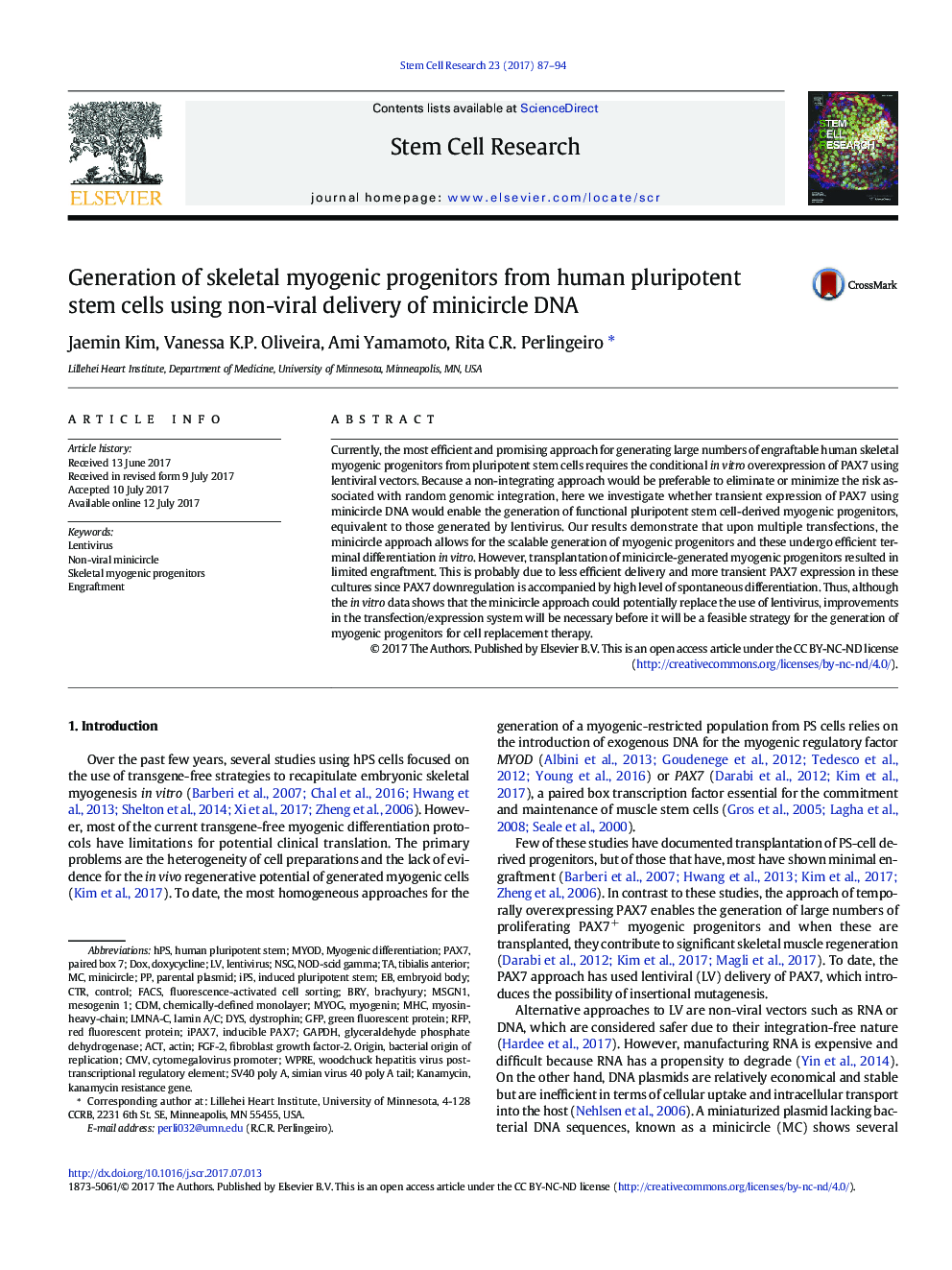| Article ID | Journal | Published Year | Pages | File Type |
|---|---|---|---|---|
| 5522597 | Stem Cell Research | 2017 | 8 Pages |
â¢PAX7 delivery using DNA minicircle (MC) induces myogenesis.â¢Multiple rounds of PAX7 minicircle delivery produces proliferating PAX7+ cells.â¢MC-generated myogenic progenitors differentiate in vitro into MHC+ myotubes.â¢MC-generated myogenic progenitors have minimal in vivo regenerative potential.â¢Delivery optimization will be necessary for cell replacement therapy applications.
Currently, the most efficient and promising approach for generating large numbers of engraftable human skeletal myogenic progenitors from pluripotent stem cells requires the conditional in vitro overexpression of PAX7 using lentiviral vectors. Because a non-integrating approach would be preferable to eliminate or minimize the risk associated with random genomic integration, here we investigate whether transient expression of PAX7 using minicircle DNA would enable the generation of functional pluripotent stem cell-derived myogenic progenitors, equivalent to those generated by lentivirus. Our results demonstrate that upon multiple transfections, the minicircle approach allows for the scalable generation of myogenic progenitors and these undergo efficient terminal differentiation in vitro. However, transplantation of minicircle-generated myogenic progenitors resulted in limited engraftment. This is probably due to less efficient delivery and more transient PAX7 expression in these cultures since PAX7 downregulation is accompanied by high level of spontaneous differentiation. Thus, although the in vitro data shows that the minicircle approach could potentially replace the use of lentivirus, improvements in the transfection/expression system will be necessary before it will be a feasible strategy for the generation of myogenic progenitors for cell replacement therapy.
